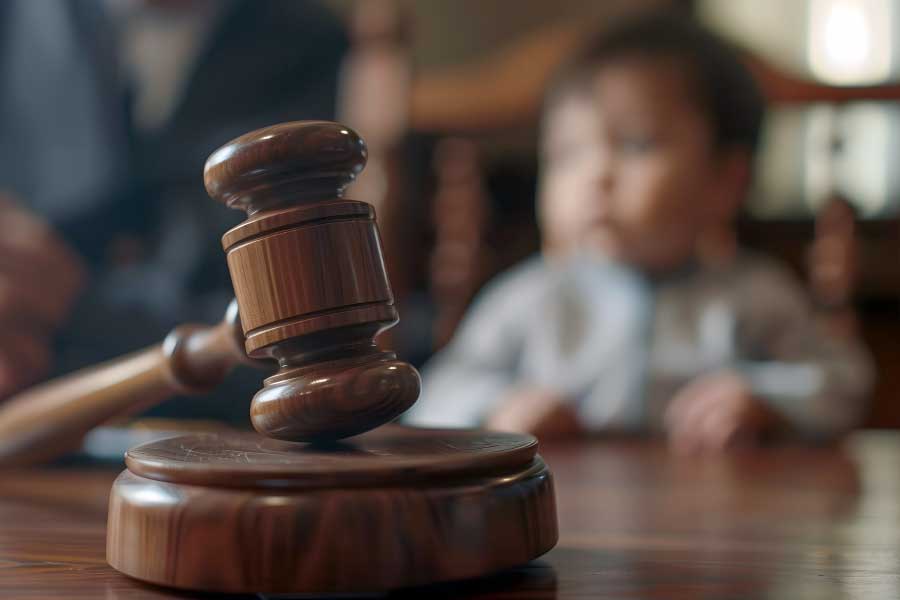Legal matters involving children in Colorado can be complicated and difficult. Sometimes, the court chooses to bring in an outside third party to protect the rights, safety, and best interests of a child involved in a custodial dispute, negligence, or abuse case. A Guardian ad Litem (GAL), literally “Guardian for the suit”, plays an essential role in child advocacy, ensuring that a child’s best interests are represented during legal proceedings. To fulfil this vital function, GALs must possess a deep understanding of family law, child development, and the various dynamics that can affect a child’s life.
Legal Framework and Responsibilities
In Colorado, the role of a GAL is governed by specific laws and statutes. Key statutes define the GAL’s duties and powers, providing a clear legal context for their work. A GAL’s responsibilities are multifaceted and include investigating the child’s circumstances, representing their best interests in court, and making recommendations to the judge. This involves conducting a thorough investigation into the child’s living situation, relationships, and overall well-being by interviewing the child, parents, teachers, and other relevant parties. In court, the GAL serves as the voice of the child, presenting their findings and recommendations to significantly influence the judge’s decisions.
According to Colorado Revised Statutes § 19-1-104, the court shall appoint a GAL for any child involved in dependency and neglect or domestic relations proceedings. The GAL can be chosen from a list of qualified persons approved by the court, or the court may appoint someone not on the list if they find it necessary.
The role of a Guardian ad Litem is essential in ensuring that children’s best interests are represented during legal proceedings. In Colorado, this is governed by specific laws such as Colorado Revised Statutes § 19-1-111 and § 14-10-116. These statutes outline the duties and responsibilities of the GAL, including conducting investigations and making recommendations to the court. The selection of a GAL is also governed by Colorado Revised Statutes § 19-1-104, which states that the court shall appoint a GAL for any child involved in dependency and neglect or domestic relations proceedings.
Collaboration and Challenges
GALs often collaborate with other professionals like social workers, therapists, and child advocacy groups to ensure a comprehensive understanding of the child’s needs. This collaborative approach is crucial for effective advocacy and better outcomes for the child. However, the role comes with its challenges, including dealing with complex family dynamics and high-stress situations.
Ongoing training and education are crucial for GALs to stay updated on best practices, legal changes, and new research in child advocacy. Real-life case studies illustrate the significant positive impact that a well-trained GAL can have on a child’s life, showcasing the importance of continuous professional development.
Working with GALs and Accessing Resources
For parents and legal professionals, effectively working with a GAL can significantly impact the case’s outcome. Understanding how to collaborate with GALs ensures a cooperative and productive relationship. In custody battles, a GAL’s involvement helps ensure that the child’s best interests are prioritized, shaping custody arrangements that benefit the child. Staying informed about legislative updates that affect GALs is crucial for future cases, as changes in laws and statutes can directly influence their role and effectiveness.
Empowering Children Through Advocacy
A Guardian ad Litem plays a vital role in advocating for a child’s best interests during legal proceedings. By understanding their responsibilities, the legal framework that governs them, and how to effectively work with them, parents, child advocacy groups, and legal professionals can better support the children involved in these cases. For more information or to seek professional guidance, consider booking a consultation with one of our experienced child advocates.
Understanding the role of a Guardian ad Litem is essential for ensuring the best outcomes for children involved in legal disputes. By prioritizing the child’s well-being and working collaboratively with GALs, we can help create a safer and more supportive environment for every child.

